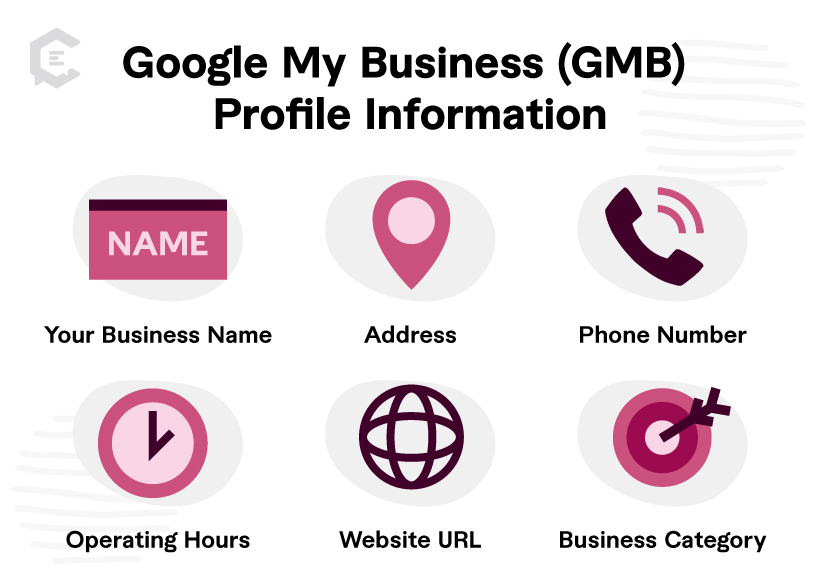What is Local SEO?
Local SEO (search engine optimization) refers to optimizing a website or online presence to improve its visibility in local search results. It is essential for businesses that only operate in certain areas and want to appear when users are searching for “near me” options.
Why is Local SEO important?
Modern technology has spoiled us. We live in a time where we can summon almost any product or service to us without ever leaving the couch. Because of that, convenience and proximity have become key factors in decision-making. As search engine optimization helps a brand appear at the top of online searches, local SEO is geared toward showcasing nearby options.
Google also displays a “Local Pack” of businesses in the search results for location-based queries. If your local SEO is well-optimized, your business appears in this prominent position, which increases visibility and clicks.
5 Key Components of Local SEO
1. Claim your GMB listing
Step one in your local search efforts is to claim your Google My Business (GMB) profile. That involves providing accurate information about:
- Your business’s name
- Address
- Phone number
- Operating hours
- Website URL
- Business Category
These data points are all key factors customers search for when deciding to visit an establishment.
It’s also crucial to keep your GMB profile up-to-date. According to Google’s site, “relevance, distance, and prominence” are the three most important factors in determining your local ranking. Customers are serious about their time investments. If someone makes an effort to drive across town and the service you offered on your profile is no longer available, they may never return.
2. Ensure consistency across websites
This may seem obvious, but make sure your address and basic information are consistent across websites. Always list your business(es) the same way (e.g., Street versus St., Rte. versus Route) and be sure that your hours of operation are accurate, especially during the fluctuating holiday season.
Consistency is also crucial to your local citations. Citations mention a business’s name, address, and phone number (NAP) on various online directories and platforms, such as Yelp. Consistent and accurate citations help search engines verify the business’s legitimacy, which boosts your SEO.
3. Maintain reviews
According to BrightLocal’s Local Consumer Review Survey 2023, 98% of consumers read online reviews for local businesses. Encouraging and managing customer reviews on platforms like Google, Yelp, and Facebook enhances your business’s credibility and visibility in local SEO.
To boost this metric, both quality and quantity are essential. Positive reviews can significantly influence potential customers’ decisions and build trust in your business.
4. Optimize your landing pages, website, and mobile versions of each
If your business has multiple locations, build a local landing page for each. Many larger brands use services to keep all their pages up to date, recommend enhancements, and pinpoint locally relevant keywords.
Your website is critically important too. On-page optimization refers to the keywords you use on your site. They should align with the words consumers or businesses use when searching for your offer.
With the increasing use of mobile devices, people often search for nearby businesses while on the go. It’s vital to fully optimize your site for mobile. That ensures your business appears in relevant mobile searches, making it easy for potential customers to find you.
5. Leverage all media and organic mentions
Local listings in directories, mentions on social media, and cross-promotion from other local businesses also factor into your ranking.
Creating content that targets local audiences, such as blog posts about events or news related to the local community, can help improve local search rankings.
Investing in UGC to boost your local SEO
Your GMB profile is heavily influenced by user-generated content (UGC), which can boost your local SEO if appropriately managed. Here are some practical ways to use UGC to enhance your local SEO:
Encourage Reviews and Testimonials
Ask satisfied customers to leave reviews and testimonials on platforms like Google My Business, Yelp, or industry-specific review sites.
Local Hashtags and Geotags
When customers include location-specific hashtags and geotags in their socials, it associates your business with local keywords and locations.
Run Contests and Giveaways
Contests or giveaways encourage customers to create content related to your business that they will likely share prominently on social media. This boosts local SEO and promotes word-of-mouth advertising.
UGC on Google My Business
Customers can post photos and share their experiences directly on your Google My Business listing. Positive UGC on GMB can enhance your local search presence. I can’t tell you how many times I went to a restaurant or went on a hike solely based on the photos associated with the GMB listing. And I know I’m not alone.
Remember to always seek permission from users before using their content and give proper credit when sharing UGC. By leveraging user-generated content effectively, you can boost your local SEO, build a robust online presence, and foster a sense of community around your business.
Local SEO is ever-evolving
Google fine-tunes its algorithm often and continually enhances its GMB (Google My Business) listings. Consider your GMB page a mini-site and make sure it’s appealing and detailed.
Above all, train yourself to see the world through the eyes (and screens) of your customers. Check your ranking often and make sure your specials, new products, photos, and reviews are current. Stay active on social media and engage your local community in collaborative marketing efforts. Use in-store tactics like beacon marketing to personalize offers to customers.
To fine-tune your local SEO search strategy and create copy that inspires your community, talk to a content specialist at ClearVoice today! We can help you stay on top of trends and ensure your business is found by the right people at the right time and place.





